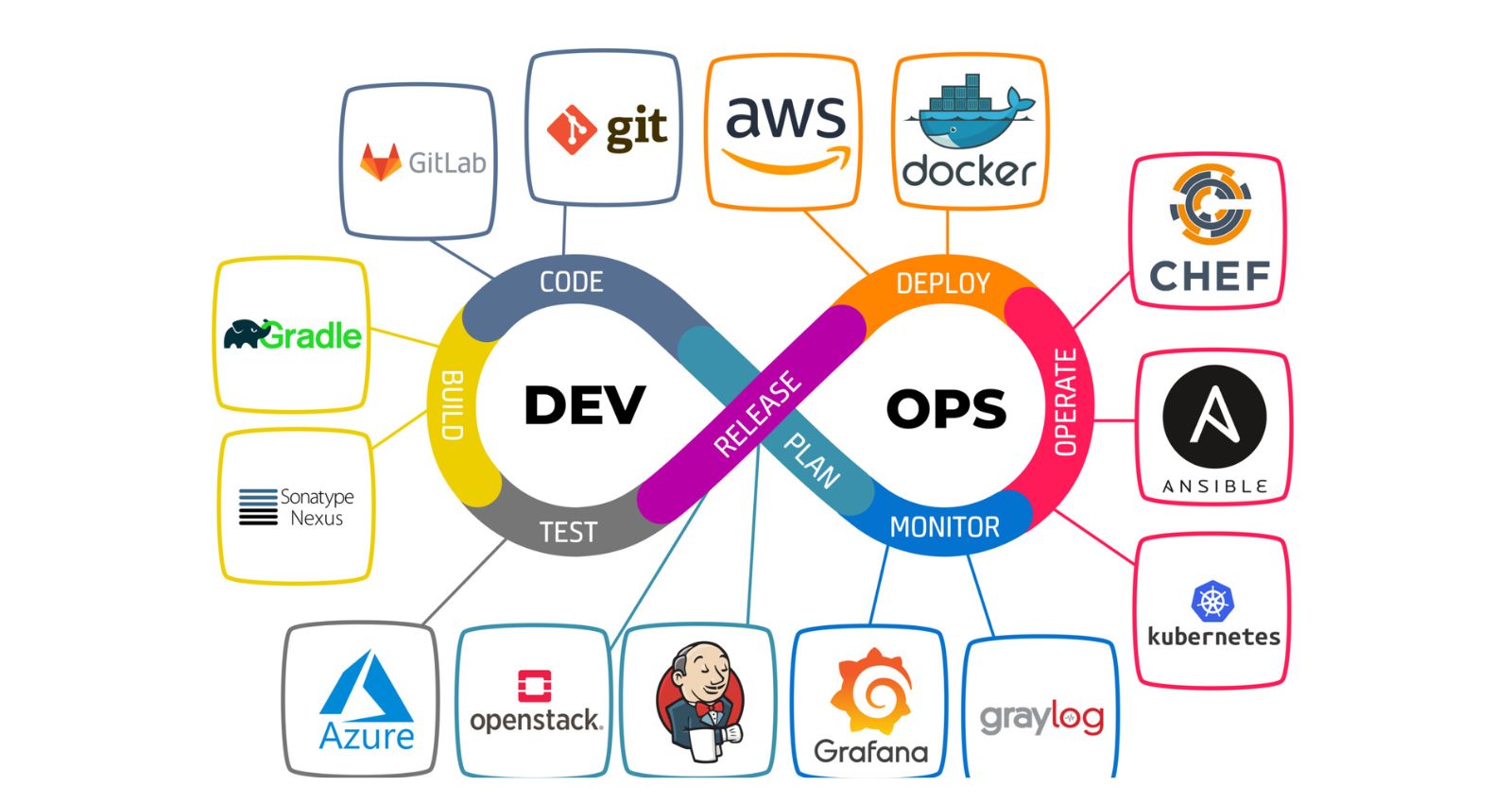Overview and Basics of DevOps
 Sourab Hossain
Sourab HossainTable of contents

What is DevOps?
DevOps is a cultural and technical foul movement aimed at improving collaboration and communication 'tween software development (Dev) and IT operations (Ops) teams. The primary quill finish of DevOps is to shorten the software d lifecycle while delivering features, fixes, and updates frequently, reliably, and with higher quality.
Roles and Responsibilities of a DevOps Engineer?
The primary role of a DevOps Engineer is to carry out methodologies that poise the needs crossways the entire software system development life cycle, including processes and tools, from coding and development to maintenance and updates. They monitor system health and track activities throughout the software program lifecycle.
How DevOps fits in the unit Software Development lifecycle?
DevOps plays a crucial role in the stallion Software d Lifecycle (SDLC) by integrating development and operations teams, fostering a culture of collaboration, and ensuring continuous rescue and deployment. Here’s how DevOps fits into each phase of the SDLC:
- Planning:
DevOps encourages collaboration between all stakeholders during the planning phase, including developers, operations, QA, and surety teams.
Requirements and feedback are shared across teams to align goals and set d expectations
- Development:
DevOps promotes using version control systems, coding standards, and machine-driven testing to ensure consistency and quality.
Continuous desegregation (CI) practices are implemented, allowing developers to ofttimes merge code changes into a shared repository, which is automatically tested.
- Building:
machine-driven build processes are set upward to compile and package code into deployable artifacts.
DevOps tools like Jenkins or GitLab CI/CD automate the build process, reducing manual intervention and errors.
- Testing:
DevOps integrates machine-driven testing into the CI/CD pipeline, allowing for early detection of bugs and issues.
Continuous examination ensures that every code transfer is tested in various environments, leadership to quicker feedback loops and high quality software.
- Deployment:
perpetual Deployment (CD) practices d automated and frequent deployment of d to production or staging environments.
substructure as Code (IaC) allows for automated provisioning and configuration of infrastructure, ensuring consistency across environments.
- Operations:
DevOps promotes proactive monitoring and logging to track system of rules performance and place issues earlier they affect users.
Automated optical phenomenon response and rollback mechanisms see that problems put up be quickly addressed with minimal downtime.
- Monitoring:
Continuous monitoring tools are used to track the health, performance, and security of applications in real-time.
Feedback from monitoring is secondhand to inform hereafter development cycles, ensuring continuous improvement.
- Feedback and Iteration:
DevOps fosters a culture of continuous feedback, where insights from monitoring and trading operations inform ongoing development and improvement.
This feedback intertwine allows for iterative development, where new features and improvements are continuously integrated and deployed.
In summary, DevOps is a perceptiveness and technical approach that enhances collaboration between software development and IT trading operations teams to castrate the package development lifecycle while ensuring frequent, reliable, and high-quality updates. A DevOps Engineer's main role is to follow up and maintain processes that support the entire software d lifecycle, from coding to d and monitoring. DevOps fits into each phase of the SDLC by promoting collaboration, automating processes, ensuring continuous testing and deployment, and fostering a feedback loop that drives unceasing improvement.
Subscribe to my newsletter
Read articles from Sourab Hossain directly inside your inbox. Subscribe to the newsletter, and don't miss out.
Written by

Sourab Hossain
Sourab Hossain
Hello, I'm Md Sourab Hossain, an experienced WordPress developer and an aspiring DevOps engineer. Currently residing in Helsinki, Finland, I bring a strong foundation in web development, with expertise in Python, PHP, and JavaScript. Professional Journey: I started my career as a Community Screener & Data Entry Operator, where I honed my data management and accuracy skills. Moving on, I worked as a Web Developer & Customer Relations Officer at Amazing-Soft, designing and developing websites, facilitating client communications, and troubleshooted complex issues. DevOps Aspirations: Inspired by a close friend working as a DevOps engineer at Nokia, I am now focused on transitioning into the DevOps field. Over the next 4-6 months, I am dedicating myself to learning key DevOps tools and practices, including Docker, Kubernetes, CI/CD pipelines, AWS, and Linux administration. Why DevOps? I am passionate about bridging the gap between development and operations to create more efficient, reliable, and scalable systems. My goal is to leverage my web development background and new DevOps skills to drive innovation and deliver exceptional results. Let's Connect: I am open to connecting with professionals in the DevOps community, potential mentors, and anyone interested in discussing technology and career growth. Feel free to reach out to me here on LinkedIn or contact number +358466450772 or via email at sourabwd@outlook.com.